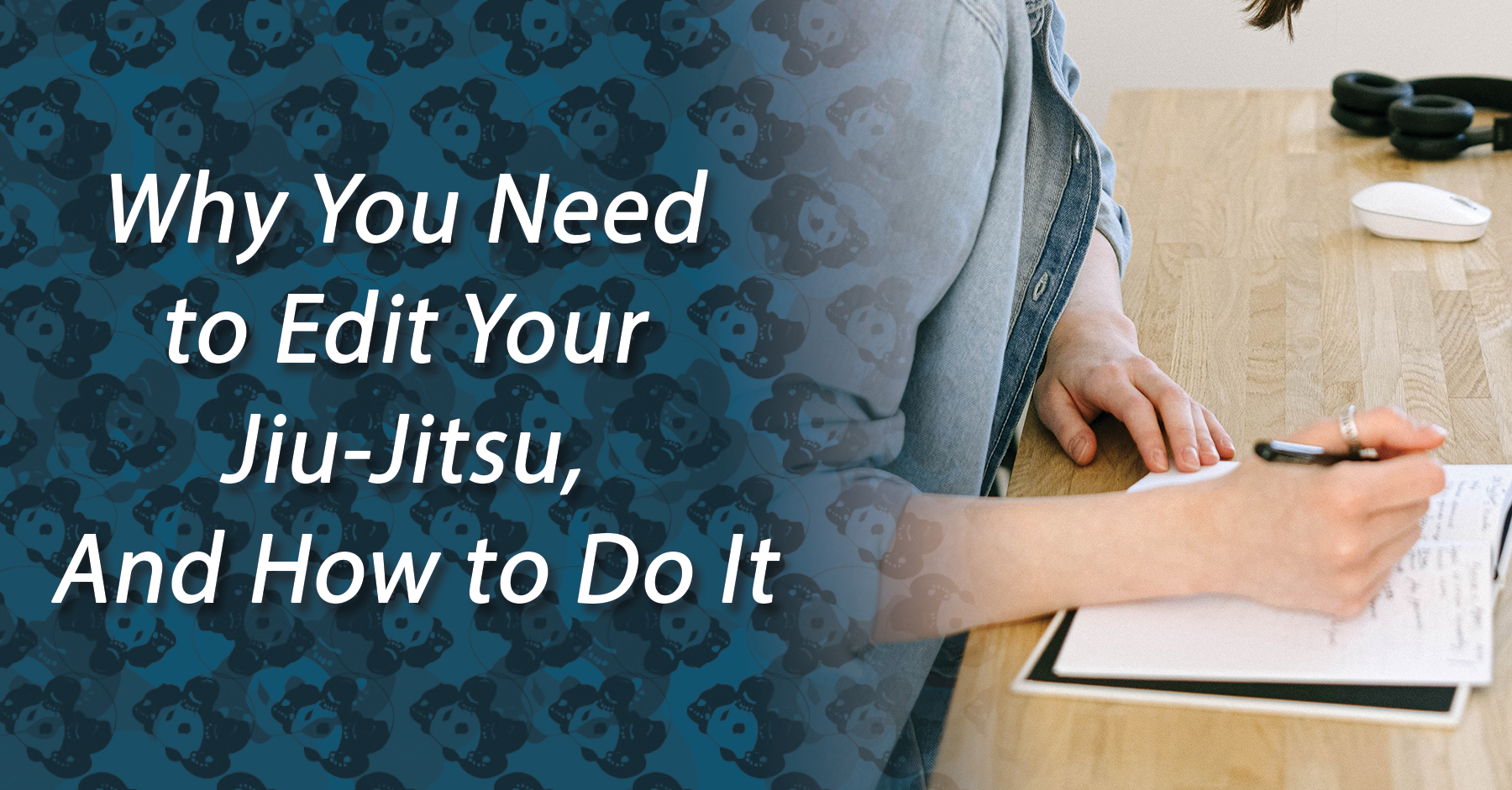
Why You Need to Edit Your Jiu-Jitsu, And How to Do It
I’m a writer who loathes revision. For me, the joy is in writing something new. But good editing is inseparable from good writing. It’s also inseparable from good jiu-jitsu. In writing, like in jiu-jitsu, editing is where half of the learning takes place.
As a newspaper editor, I noticed that the reporters who paid attention to revision stood out. Similarly, the grapplers who edit their BJJ stand out. I’ll give you an example of each.
The good reporters seldom made the same mistakes twice because they attended to the editing process. Some would even ask the copy editors and assigning editors questions about the changes made to their stories.
Then there were the reporters who filed their stories and never looked back. I could predict many of the edits that their stories would require.
Think of some of your regular training partners. I bet you can predict many of the mistakes they’ll make or patterns they’ll follow.
The good grapplers likely stand out in your mind because they edit their games. They self-assess, analyze, update, and sometimes discard what isn’t working. You know them because they’re hard to catch. You know the non-editors because they make the same blunders, or have been playing the same game for months or years.
Like writing, jiu-jitsu is a creative expression. It is a martial art. Making art requires concentration, deliberate practice, and revision. The first draft of Ulysses didn’t go straight to print, and your first attempt at a triangle didn’t win ADCC.
Yet many grapplers seldom or never edit their jiu-jitsu. Some rush from one new technique to the next, mastering none. They favor breadth over depth. Others do the opposite. They go with tried-and-true techniques and tactics, even though they stopped producing results -- even though they have ceased growing.
Why?
“We optimize for short-term ego protection over long-term happiness,” writes Shane Parish in The Great Mental Models. “Increasingly, our understanding of things becomes black-and-white rather than shades of gray.”
Replace happiness with the word efficacy and I think you’ll see my point. To edit your jiu-jitsu is to optimize for long-term growth and efficacy rather than short-term ego protection or instant gratification. I believe walking the martial path – which strives for depth and mastery, as well as openness to new techniques and experience – requires constant editing. You can’t take editing out of writing, and you can’t take it out of jiu jitsu, either.
So, how do we edit our games? Here are a few things that have worked for me.
Record rounds and matches. Record your rolls and if you compete, your matches. Note (literally, write this down somewhere) what works and what doesn’t. But don’t stop there. Ask yourself why something is or isn’t working. Think critically. Be ruthless. Did you get lucky/unlucky? Did you blunder? Were you overmatched?
Ask for feedback. Meaningful Feedback that is often difficult to hear. Asking for feedback is tricky because you need to select someone who will hold nothing back. Generally, it’s better to ask for feedback from someone who is at least a belt level above you to account for knowledge or skill gaps. Pick someone who won’t tell you what you want to hear.
Take notes. This interview with a newly minted black belt taught me to get serious about taking notes. I use Microsoft OneNote to write observations immediately after class. OneNote allows me to access notes on my laptop or phone. After class, I write out the details of the lesson as well as observations from standout rolls. I focus on what went wrong and what went right. The wrongs will inform what I do in step 4.
Watch instructionals. Video from your rolls and matches, feedback from your friends or instructor, and your notes will help identify the gaps in your game. Instructionals will help close those gaps. You can find some great instructionals, like this one, on the Inverted Gear site. Don’t get me wrong – there’s no substitute for in-person instruction, but ultimately, you’re beholden to whatever the instructor is teaching that day. Watching instructionals will help you take ownership of, edit, and execute your training plan.
Deliberate practice. You’ve identified the gaps in your game and determined how you’re going to fill them. Now it’s time for deliberate practice. Positional sparing is great for this. Work with varying degrees of resistance from your partner. Reset whenever you succeed or fail. Try not to focus on the outcome of this training, but on how you’re integrating the new material and closing the gaps in your game. Editing your BJJ is a journey.
Editing your jiu-jitsu can feel like taking yourself apart. The pain, however, will pay off. High-level, focused attention is part of what separates the elite from the average across sports and industries. Editing your BJJ sets you apart. It orients you toward optimizing long-term efficacy over short-term ego protection.
Joe Hannan is a consultant, writer, and purple belt at Princeton Brazilian Jiu-Jitsu. You can see more of what he’s up to here or follow him here.
Other articles:
Quick links
Contact us
About us
Quality BJJ gear at fair prices, available all year. Founded in 2012 to provide an alternative to high-cost, limited edition gis. Dive into the BJJ lifestyle with us—join the Panda Nation!"
